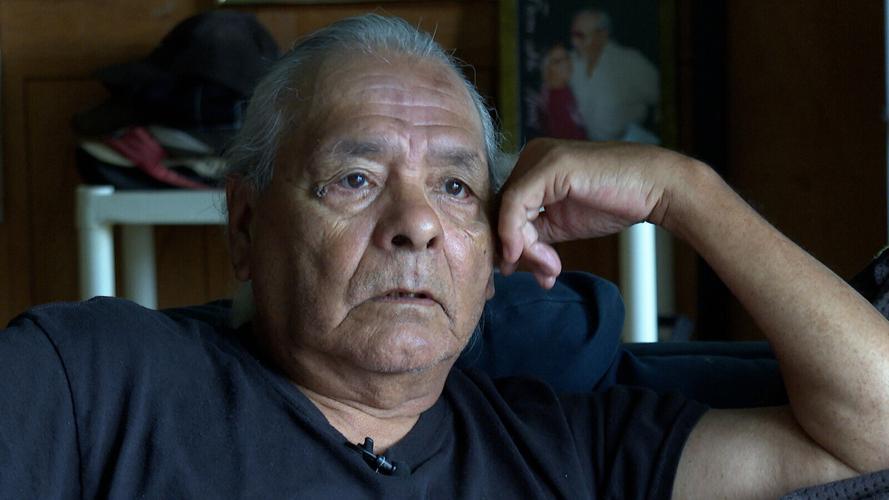The Pope went to Canada to apologize. For some indigenous school survivors, he triggered more pain

Her grandmother sewed it for her when she was four years old, she says, before she was sent to Fort Alexander residential school in the 1960s. But a nun took the coat from her, she remembers.”That nun took it off of me and threw it at my mom,” she told CNN. Then the nun called her mother a ‘savage” — an incident she said foreshadowed Children as young as three were buried on the grounds of the formerly Catholic Church-run school — once one of the largest in Canada. The Pope’s visit comes as dozens of indigenous communities across Canada search the grounds of former residential institutions looking for unmarked graves. Sagkeeng First Nation in southeastern Manitoba is actively surveying their land, with searches underway on the site of the former Fort Alexander Residential School.On the grounds of Fort Alexander, a drone operator flies a leading-edge commercial drone armed with ground-penetrating radar technology — part of a team carrying out a grisly operation to search deep below the earth for the bodies of missing Indigenous children. Canadian drone company AltoMaxx was hired by the Sakeeng to survey the land, and has expanded its search to several sites based on information gathered from survivors and elders.The searches have so far found 190 anomalies in the ground which could indicate the presence of human remains, says First Nation Chief Derrick Henderson.Challenges in the searchFour different areas have been surveyed so far and two school cemeteries have been identified, and two additional areas with potential unmarked graves have also been identified, according to Katherine Nichols, whose research launched investigations into the unmarked graves associated with the Brandon residential school site.In June, the Manitoba provincial government allocated $1.94 million USD to indigenous governments and organizations for the identification, commemoration and protection of burial sites of children who attended residential schools. Elder councils and survivors are key in the investigation, giving researchers and scientists guidance on how to proceed and where to search. They have helped provide more information on identifying those potentially buried at a certain site and helping establish connections with living family members, as researchers use archival records to determine who attended the school and who was recorded to have gone missing.”I think it’s always been a priority for us to ensure that this process is indigenous led and that’s what we have always communicated — that it is important to involve the elders just to ensure that we’re following the cultural protocols and taking their direction as knowledge keepers for our community,” Bone told CNN.Pompana along with other residential school survivors is part of a team that works on gathering the names of children who attended Brandon. Some of those names, Pompana says, she recognizes as former classmates.”I find that sometimes when I meet other survivors I feel the need to confirm that it really did happen because as a young child, a lot of things happened that I had suppressed in my mind. But there are times when they came out and I needed to make sure I talked to others about it,” she said.Ceremony and commemoration, she says, have also been healing for her — evidence of how important it is for the Canadian government as well as Church authorities to acknowledge and atone for the pain of thousands of Indigenous children and its generational impact.”I find that there is a lot of support now, in mainstream society,” Pompana says. “They are finally recognizing that this happened to us and they’re willing to help us in many ways.” If you have been affected by this story, the following telephone lines are available 24 hours a day for emotional and counselling support and crisis referral in Canada:National Centre for Truth and Reconciliation (NCTR) Residential School Crisis Line: 1 866 925 4419 Indian Residential School Survivors Society (IRSSS) Emergency Crisis Line: 1 800 721 0066





